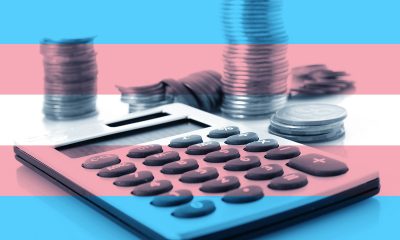News
Mexico City lawmakers approve trans rights bill
Measure to allow legal gender changes without court order
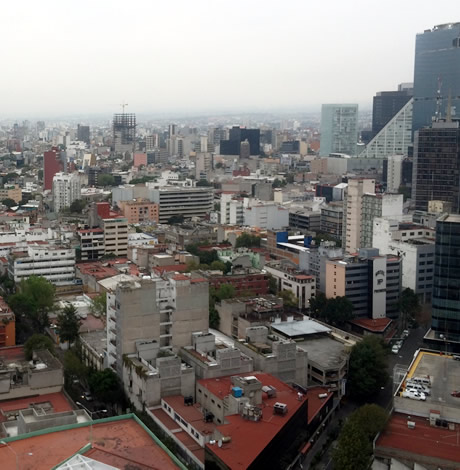
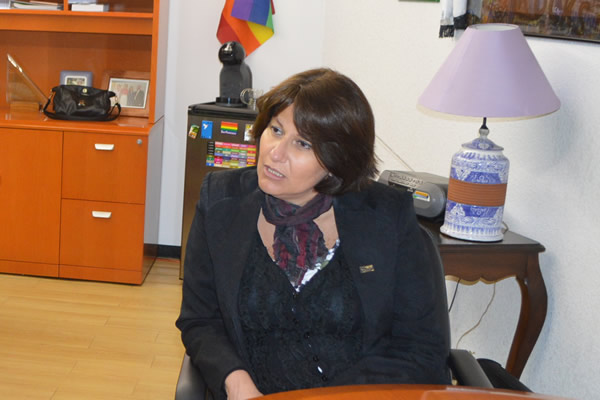
Jacqueline L’Hoist Tapía, president of the Mexico City Council to Prevent and Eliminate Discrimination, supports transgender people’s ability to legally change their gender in the Mexican capital without a court order. (Photo by Angélica Pineda)
Members of Legislative Assembly of the Federal District, in which Mexico City is located, approved the measure by a 42-0 vote margin. Six lawmakers abstained from the vote on the measure that Mexico City Mayor Miguel Ángel Mancera proposed.
Manuel Granados Covarrubias of the Party of the Democratic Revolution, known by the Spanish acronym PRD, welcomed the proposal’s approval.
“It eliminates cumbersome trials and judicial proceedings, procedures, to generate the administrative change of a legal action to which everyone has the right,” said Granados in a press release the Legislative Assembly of the Federal District released after lawmakers approved the measure. “Their dignity is also recognized.”
The Mexico City Commission to Prevent and Eliminate Discrimination, known by its Spanish acronym COPRED, launched a campaign in support of the measure.
COPRED spokesperson René Said Nieto told the Washington Blade that Mexico City on Thursday “took a major step forward” towards the recognition of trans people.
“(The measure) guarantees the rights of people to the recognition of their gender identity,” said the Human Rights Program of the Federal District in a statement.
Mexico City is the first city in Latin America to allow trans people to legally change the gender on their birth certificates without a medical examination. The Mexican capital’s comprehensive anti-discrimination law already includes gender identity and expression and designates transphobia as a form of discrimination.
Argentina President Cristina Fernández de Kirchner in 2012 signed a law that allows trans Argentinians to legally change their gender on official documents without sex-reassignment surgery and an affidavit from a doctor or another medical provider. The Chilean Senate next week is expected to vote on a bill that would allow trans people in the South American country to legally change their name and sex without sex-reassignment surgery.
Supporters of Mariela Castro, daughter of Cuban President Raúl Castro, credit her with successfully lobbying her father’s government to begin offering free sex-reassignment surgery under the country’s national health care system in 2008.
Maryland
Vogel finishes second in primary race for Trone’s congressional seat
Gay Maryland lawmaker lost to April McClain Delaney
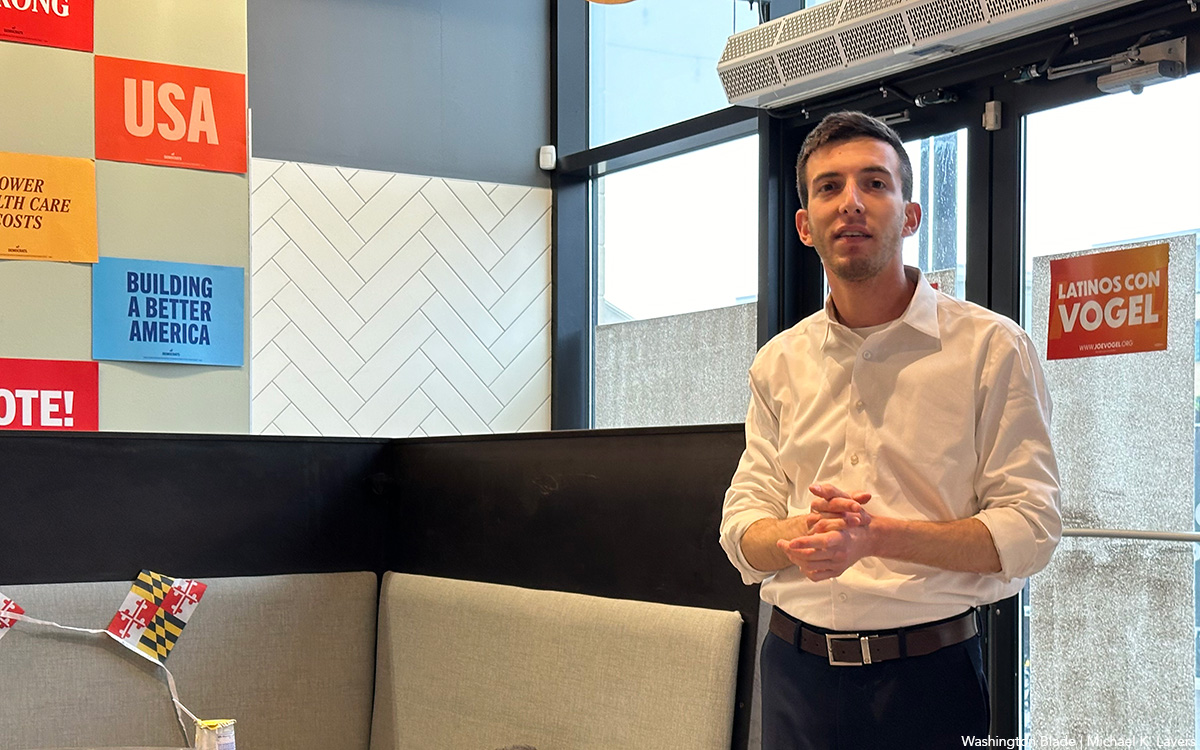
GAITHERSBURG, Md. — Gay Maryland state Del. Joe Vogel (D-Montgomery County) on Tuesday finished second in the Democratic primary for Congressman David Trone’s seat.
Vogel lost to April McClain Delaney by a 39.2-26.7 percent margin with 52 percent of the votes counted.
The Montgomery County Democrat spoke to supporters at the South House Garden in Gaithersburg after he conceded to Delaney.
“I wished her well and pledged that I will do everything in my power and nature that we hold this seat in November, elect a Democratic senator in November and re-elect President Joe Biden,” said Vogel.
Vogel was born in Uruguay. He would have been the first Latino, the first gay man and first Gen Zer elected to Congress from Maryland if he would have won in November.
Delaney will face Republican Neil Parrott, an anti-LGBTQ former member of the Maryland House of Delegates, in November.
Maryland
Alsobrooks defeats Trone in Md. Senate primary
Prince George’s County executive to face Larry Hogan in November
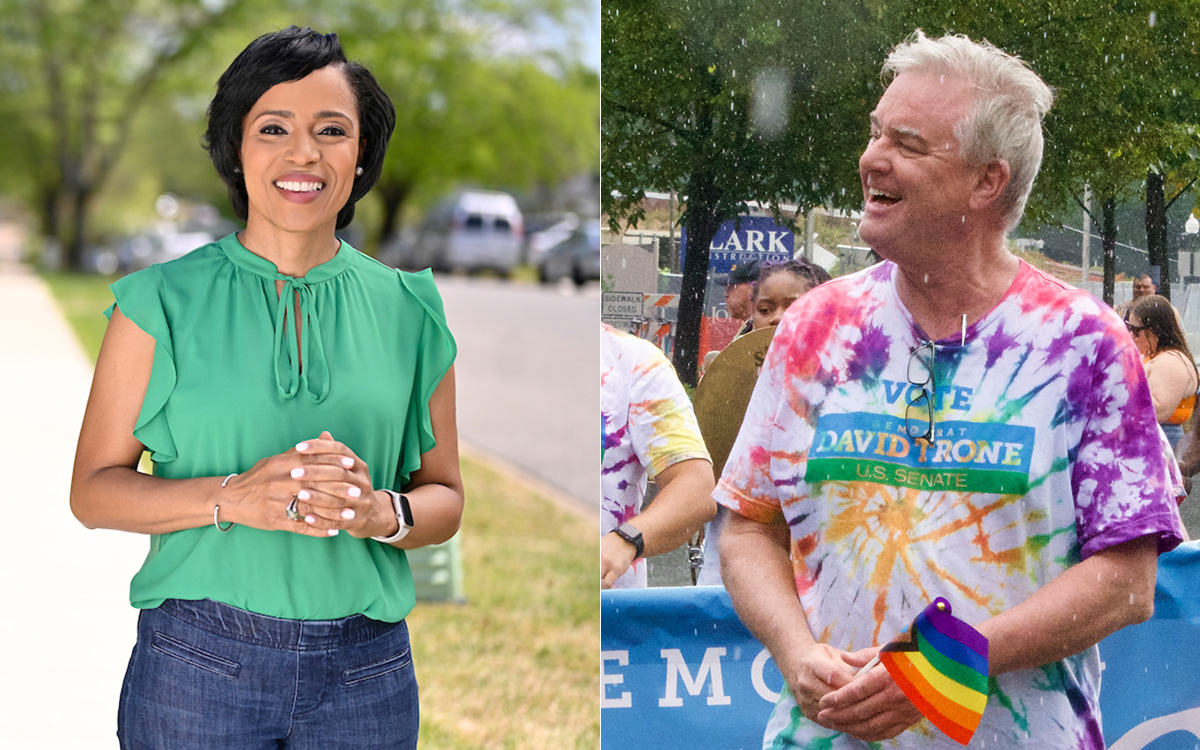
Prince George’s County Executive Angela Alsobrooks on Tuesday defeated Congressman David Trone in the Democratic primary to succeed retiring U.S. Sen. Ben Cardin (D-Md.).
Alsobrooks defeated Trone by 53.8-42.1 percent margin. She will face Republican former Gov. Larry Hogan in November.
“On Nov. 5, 2024, we are going to defeat Larry Hogan, keep Maryland blue, and keep our Senate under Democratic control,” said Alsobrooks on her X account after she defeated Trone.
Vice President Kamala Harris, Human Rights Campaign President Kelley Robinson, U.S. Sen. Laphonza Butler (D-Calif.), U.S. Reps. Lisa Blunt Rochester (D-Del.) and Maxwell Alejandro Frost (D-Fla.) and D.C. Mayor Muriel Bowser are among those who congratulated Alsobrooks.
“Tonight we celebrate, and tomorrow we keep fighting to get her elected as Maryland’s next U.S. senator in November,” said Robinson on her X account.
National
FBI warns of potential threats to Pride Month events
Advisory notes June 12 marks eight years since Pulse nightclub massacre
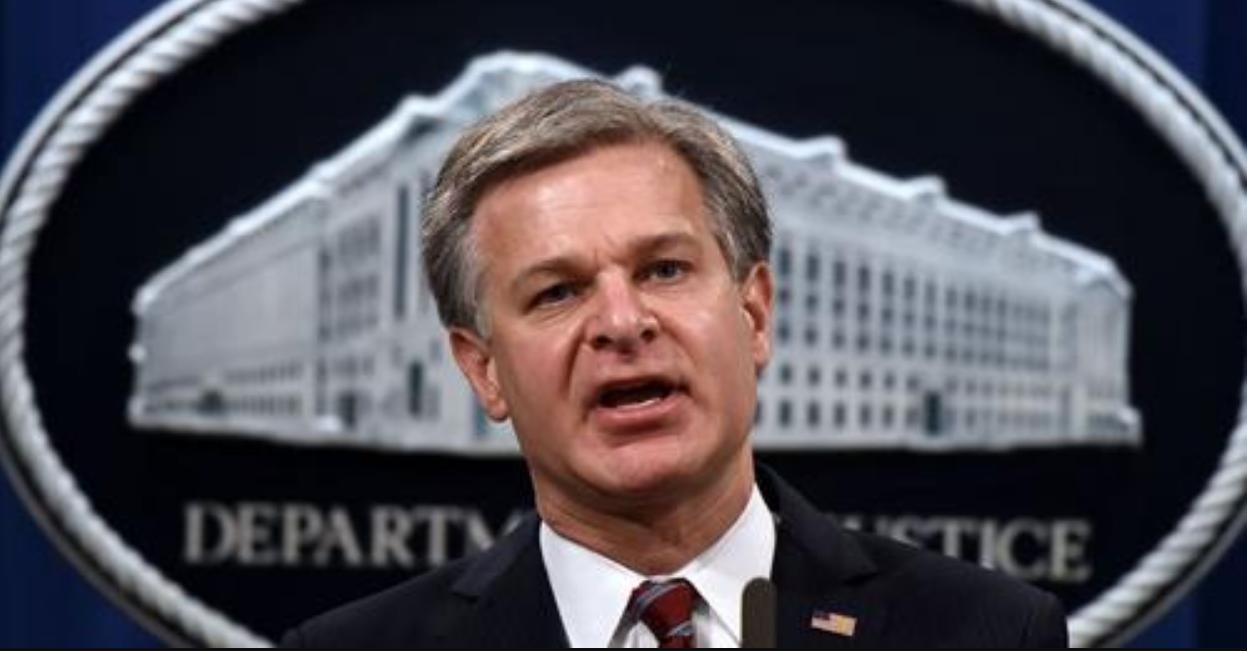
Citing the rising numbers of violent threats primarily across the digital landscape online including emailed bomb and death threats, officials from the Federal Bureau of Investigation and Homeland Security Investigations have issued warnings that foreign terrorist organizations or their supporters are targeting the LGBTQ community during Pride Month.
In a notice released on May 10, the FBI and HSI warn that efforts to commit or inspire violence against LGBTQ celebrations, including Pride celebrations or other LGBTQ-related venues, are compounded by the current heightened threat environment in the U.S. and other Western countries.
The FBI and HSI noted that June 12 marks the eighth anniversary of the Pulse nightclub shooting in Orlando, Fla., during which the attacker killed 49 people and wounded 53 others. After the Pulse shooting, pro-ISIS messaging praised this attack as one of the high-profile attacks in Western countries, and FTO supporters celebrated it. There are concerns that instances like the Pulse anniversary could spark a violent attack.
In addition to the threats posed by off-shore groups, increased threat levels domestically including recently documented instances of homophobic and transphobic threats exemplified recently from reporting by multiple media outlets regarding Libs of TikTok’s creator Chaya Raichik, who had initiated an ongoing campaign against Planet Fitness, demanding a boycott in retaliation for the gym’s transgender-inclusive locker room policy.
At least 53 locations of Planet Fitness have reported hoax bomb threats in recent weeks; the threats were primarily reported through emails, and in some cases, phone calls, continuing what has become a trend of violent threats against institutions targeted by Raichik.
Raichik has a long documented history of fostering anti-LGBTQ animus through her posts which in turn has led to what NBC News, Media Matters, the SPLC, the Washington Blade, and others documenting Raichik’s anti-LGBTQ acts of arguably stochastic terrorism.
In February, NBC News Technology Reporter David Ingram, detailed bomb threats and violent threats inspired by Raichik’s social media posts. NBC News identified 33 instances, starting in November 2020, when people or institutions singled out by Libs of TikTok later reported bomb threats or other violent intimidation.
During his April 11 testimony on Capitol Hill, FBI Director Christopher Wray issued a warning to lawmakers telling a House subcommittee that there is a growing fear among law enforcement officials of possible “coordinated attack” inside the U.S. telling committee members that a “lone-wolf” attack promulgated by events in Middle East are the agency’s overarching worry.
Speaking with the Blade on background, a senior FBI official noted that Pride events in locales other than major urban settings, particularly the largest Pride gatherings in New York, San Francisco, Los Angeles, and D.C., which have a traditionally large police presence, smaller cities and towns are at elevated risk.
In an emailed statement, the FBI said it has, in general, observed an increase in threats of violence targeting institutions like hospitals and schools.
“As a country and organization, we have seen an increase in threats of violence targeting government officials and institutions, houses of worship, schools, and medical facilities, just to name a few. The FBI and our partners take all threats of violence seriously and responding to these threats ties up law enforcement resources.
“When the threats are made as a hoax, it puts innocent people at risk, is a waste of law enforcement’s limited resources, and costs taxpayers. The FBI and our state and local partners will continue to aggressively pursue perpetrators of these threats — real or false — and hold them accountable,” the FBI statement said.
Reacting to the elevated threat levels in a statement, GLAAD President Sarah Kate Ellis said:
“A fringe few extremists, domestically and overseas, are irrationally threatened by the rising tide of acceptance for LGBTQ people. It is important to keep Prides safe for all attendees, and for people to keep showing up during Pride and throughout the year to speak up for the equality and safety of their communities and all marginalized people.”
The FBI is asking that Pride event planners, organizers, and others be aware of possible indicators of potential threat activity:
- Violent threats made online, in person, or via mail.
- Unusual or prolonged testing or probing of security measures at events or venues.
- Photography of security related equipment, personnel, or access points consistent with pre-operational surveillance without a reasonable alternative explanation.
- Unusual surveillance or interest in buildings, gatherings, or events.
- Attempts to gain access to restricted areas, bypass security, or impersonate law enforcement officials.
- Observation of or questions about facility security measures, including barriers, restricted areas, cameras, and intrusion detection systems without a reasonable alternative explanation.
- Eliciting information from facility personnel regarding the nature of upcoming events, crowd sizes, busiest times of day, etc., without a reasonable alternative explanation.
- Attempts to enter a restricted area, bypass security, or impersonate law enforcement officials.





